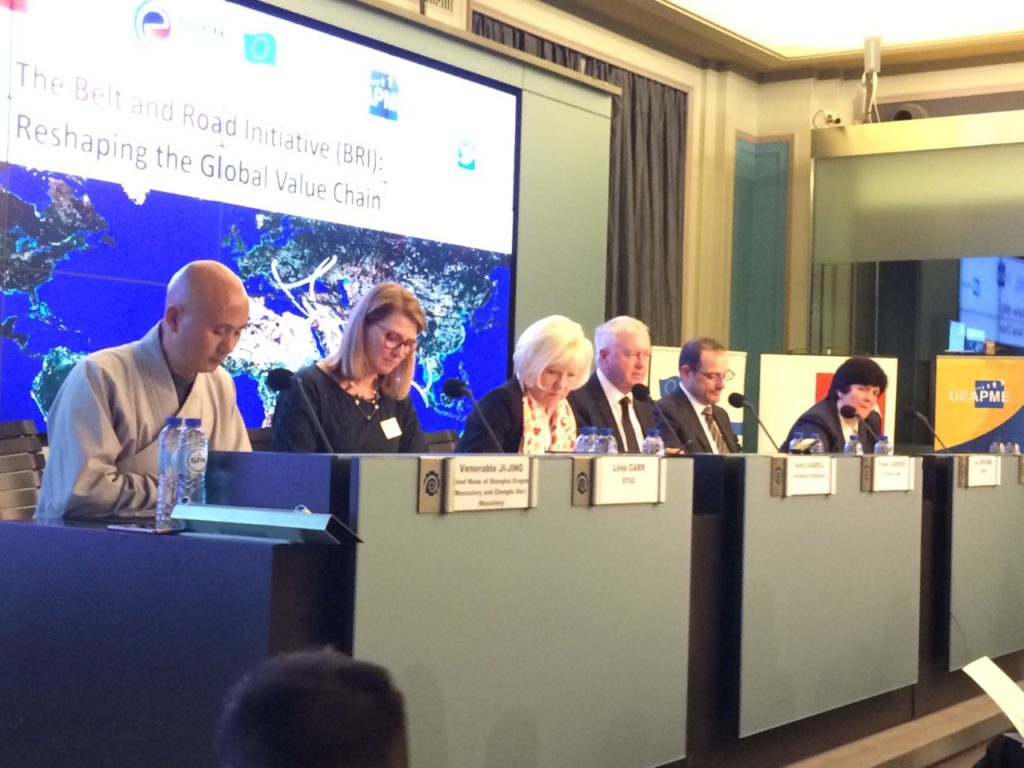Policy makers and business operators from China and Europe debated this week the implications for European business of the Belt and Road Initiative at a multi-stakeholder conference in Brussels. The Belt and Road Initiative (BRI) is China’s grand scheme to link Asia and Europe together via new massive infrastructure projects in Central Asia, the Middle East, Africa and the Balkans.
Announced by Chinese President Xi Jinping in 2013, the BRI is seeking to rebuild China’s ancient silk routes for the 21st century, looking to build new connections across three continents. The project is very ambitious, but it is still in its infancy.
Maggie McGhee, director at ACCA (Association of Chartered Certified Accountants), opened the debate: “BRI could well be the physical embodiment of a globalised world, introducing trade and services that cut across borders and continents.”
BRI brings important opportunities for the countries on its route, and could help bridging the infrastructure financing gap, increase connectivity, link local markets to regional and global value chains, thereby increasing trade and investment in these countries.
Shi Wei, counsellor at the Mission of China to the EU, said that the BRI is based on five pillars: policy, infrastructure, finance, trade, and people-to-people contacts. He hoped that these pillars will provide a comprehensive connectivity between Asia and Europe.
But speakers also highlighted several geopolitical, developmental and regulatory challenges.
“The Belt and Road Initiative is a demonstration of China’s financial muscle and will be a real challenge for the unity of the EU,’ said Fraser Cameron, Director of the EU-Asia Centre.
BRI’s success and its ability to foster connections between the EU and China will require more than just building physical infrastructure, and any kind of infrastructure - whether land, sea, air or digital - should not be designed in isolation.
Jo Leinen, Head of the EU-China Delegation in the European Parliament, warned that the BRI is a unilateral idea from Beijing and requires EU involvement. “Now we have to come to multilateralism, otherwise this project will not succeed”.
Companies who want to maximise the opportunities offered by BRI were advised to start preparing now.
The Brussels Times

